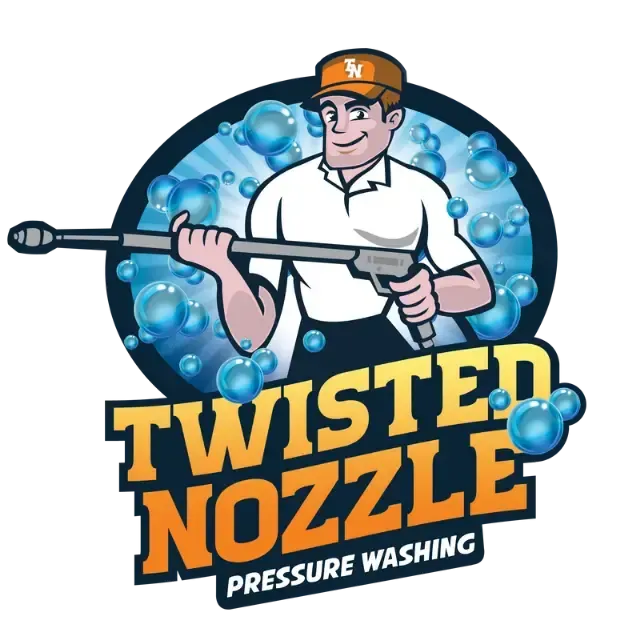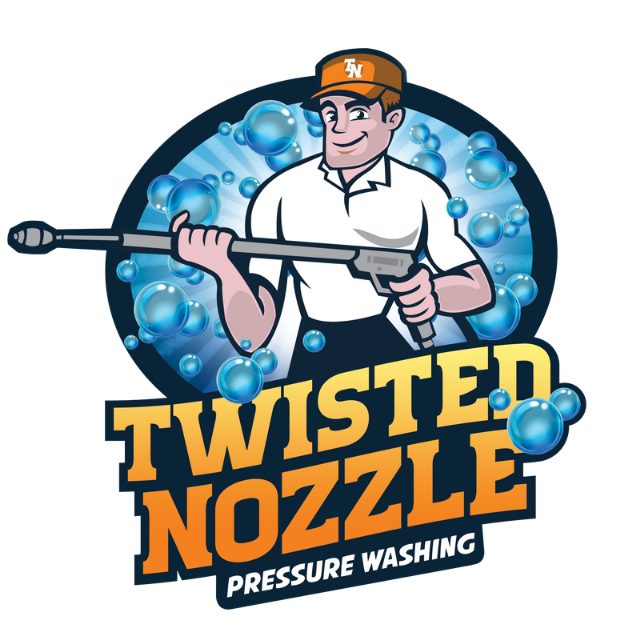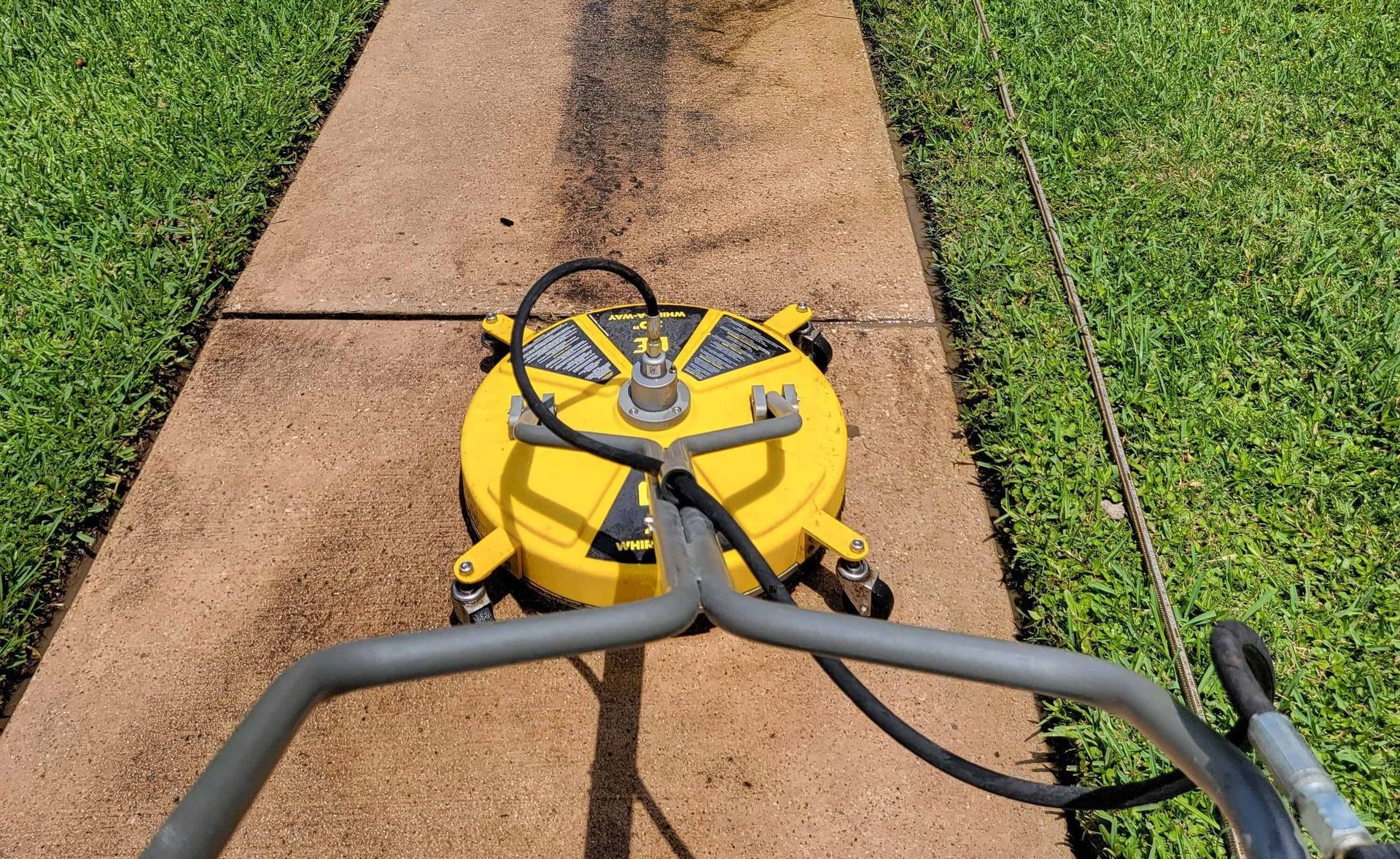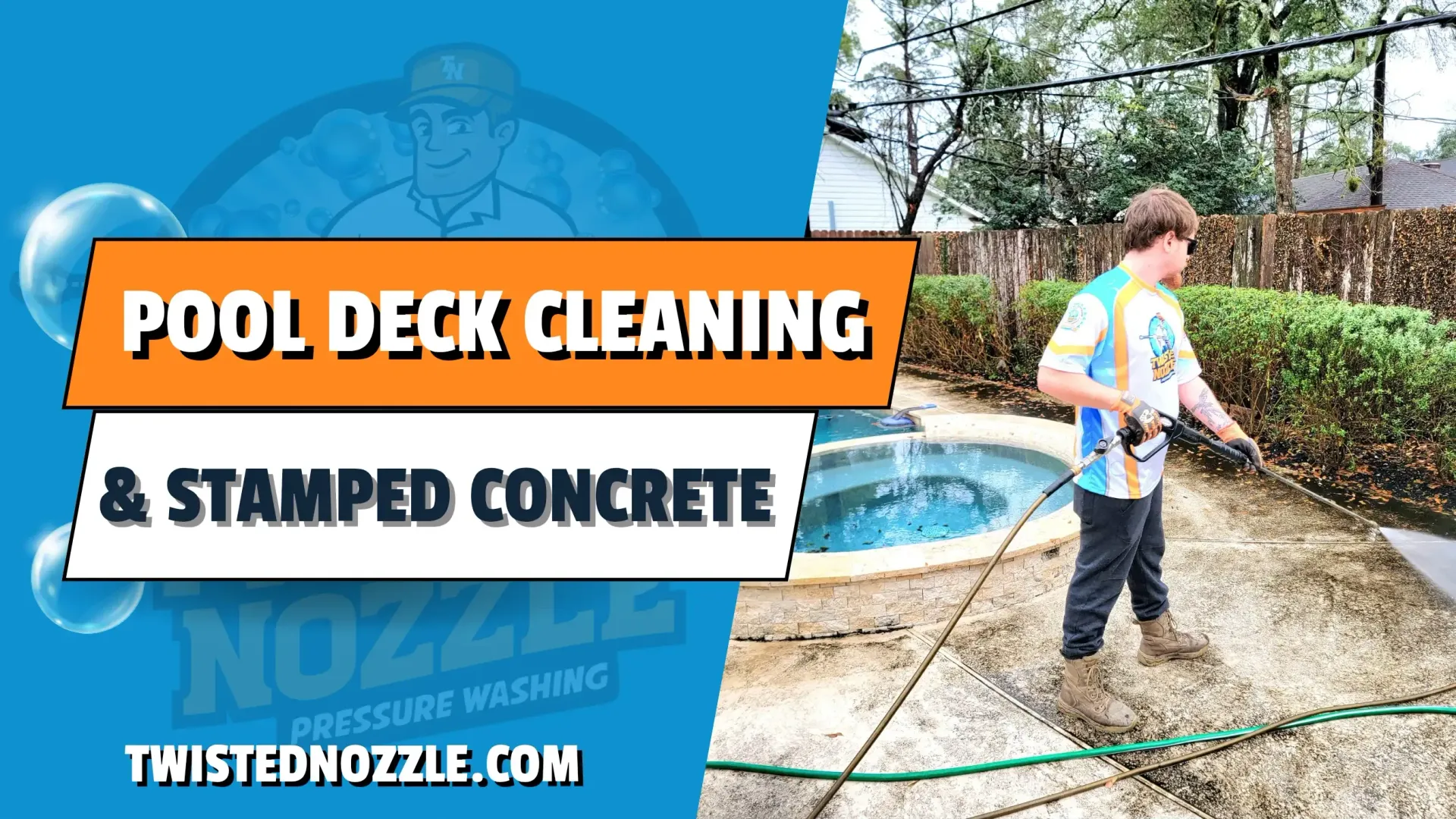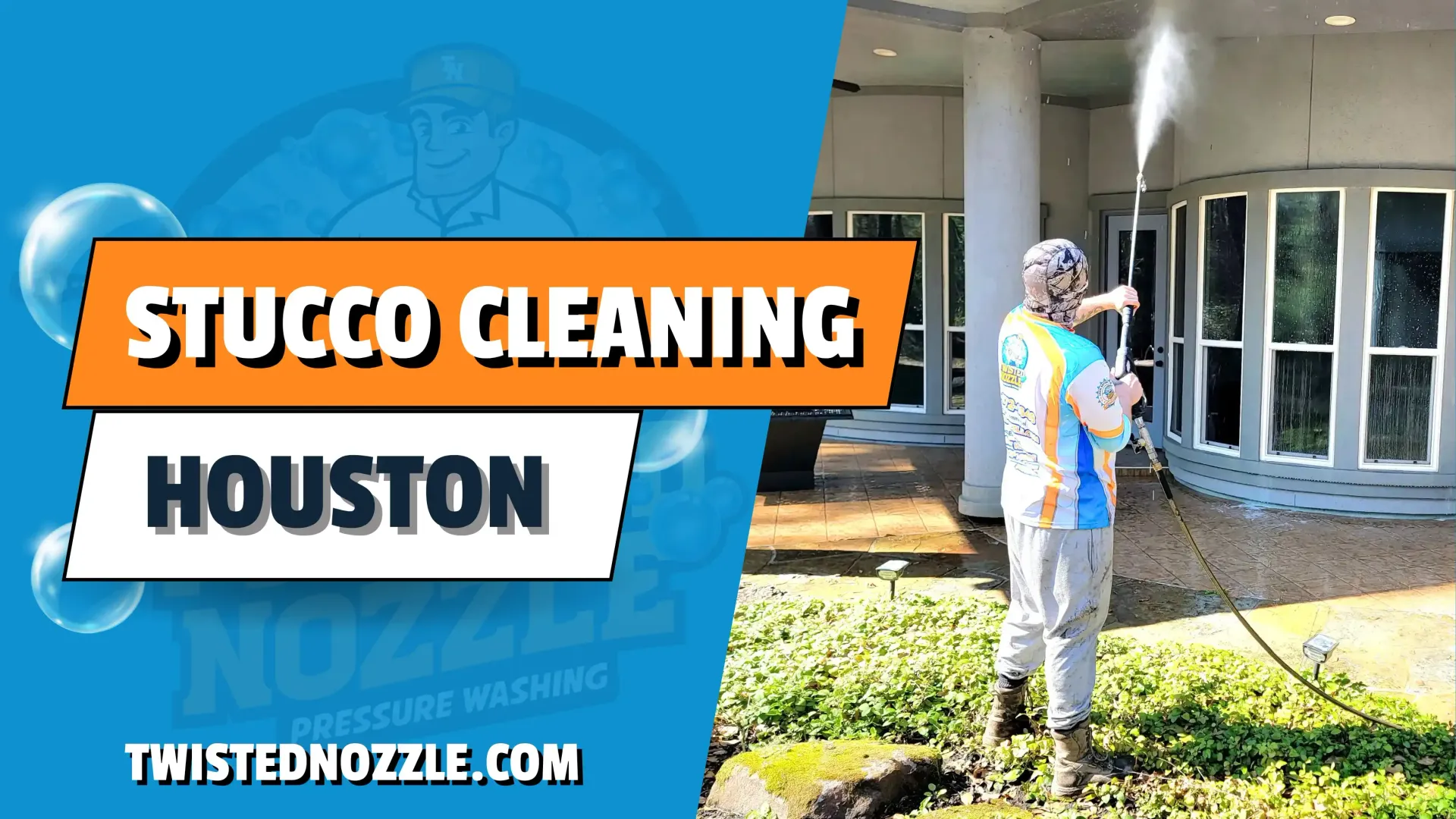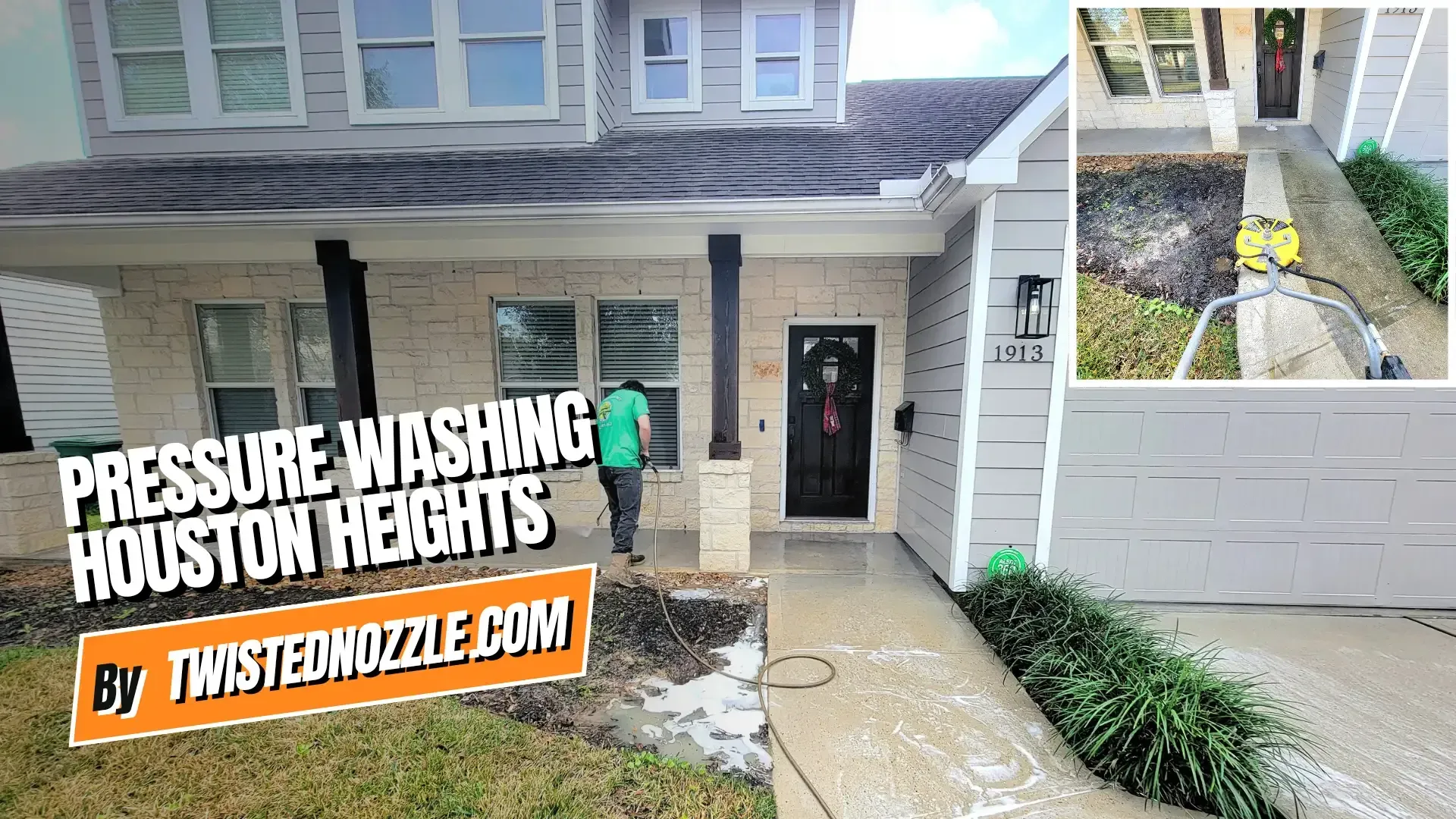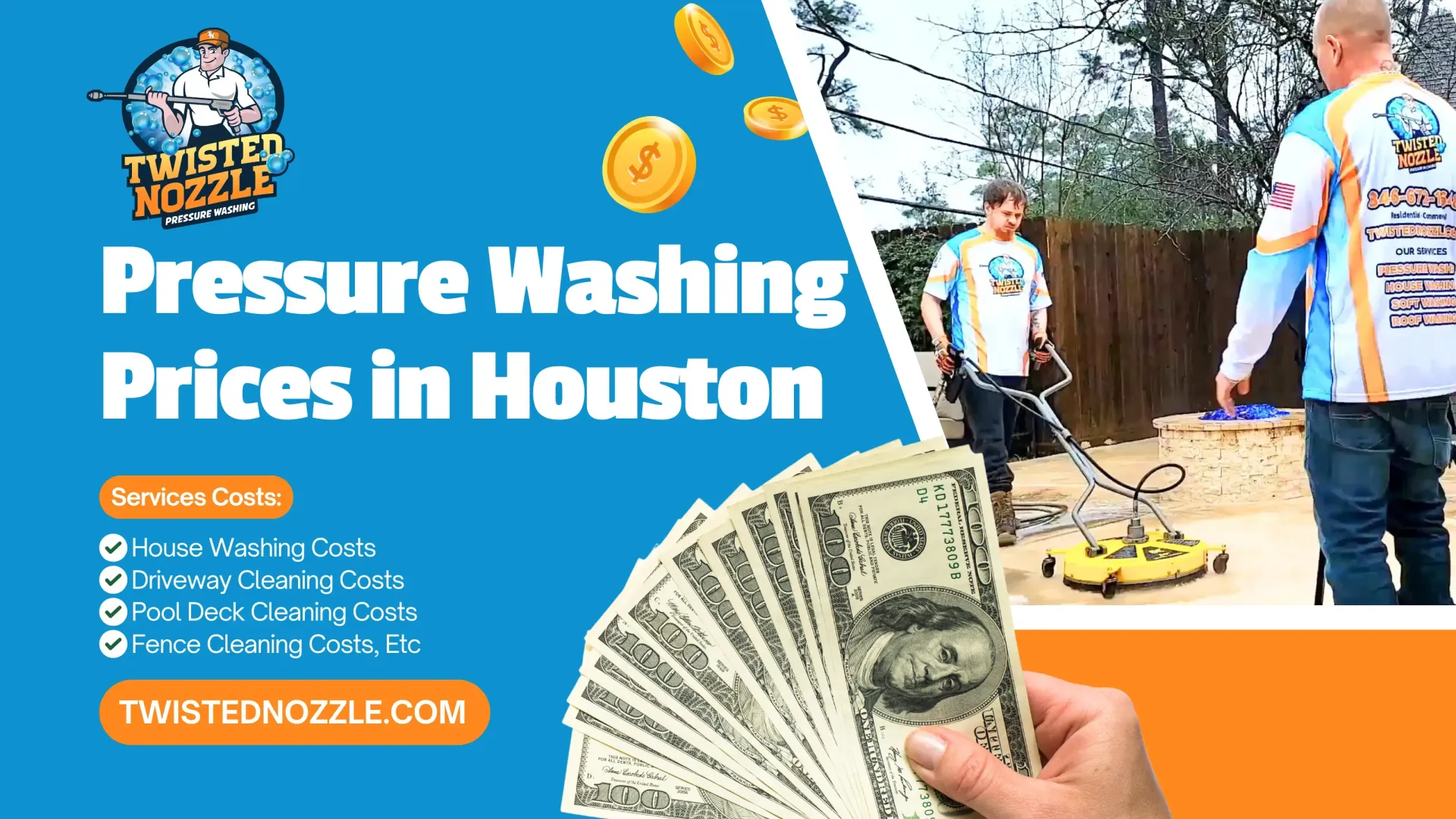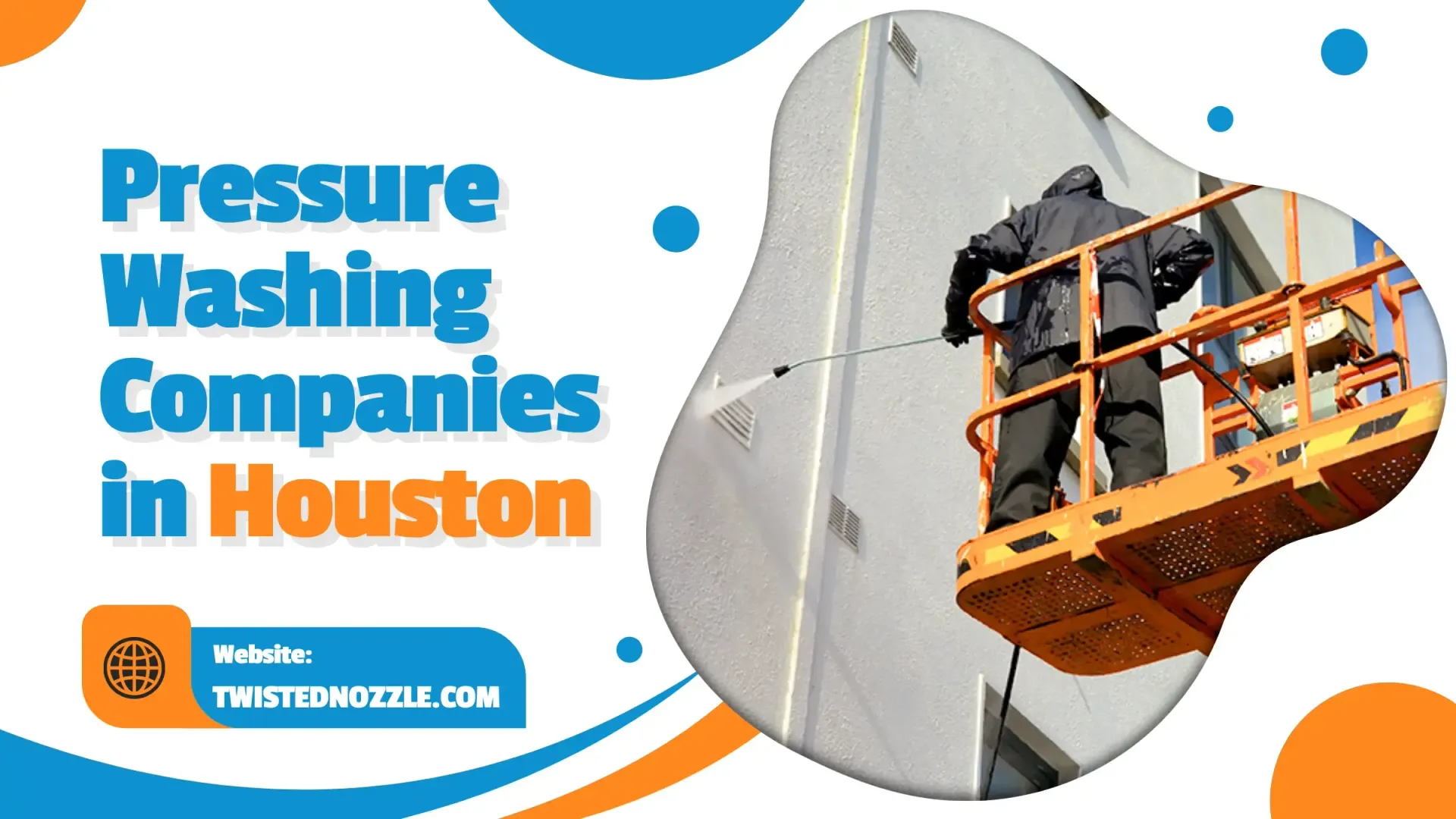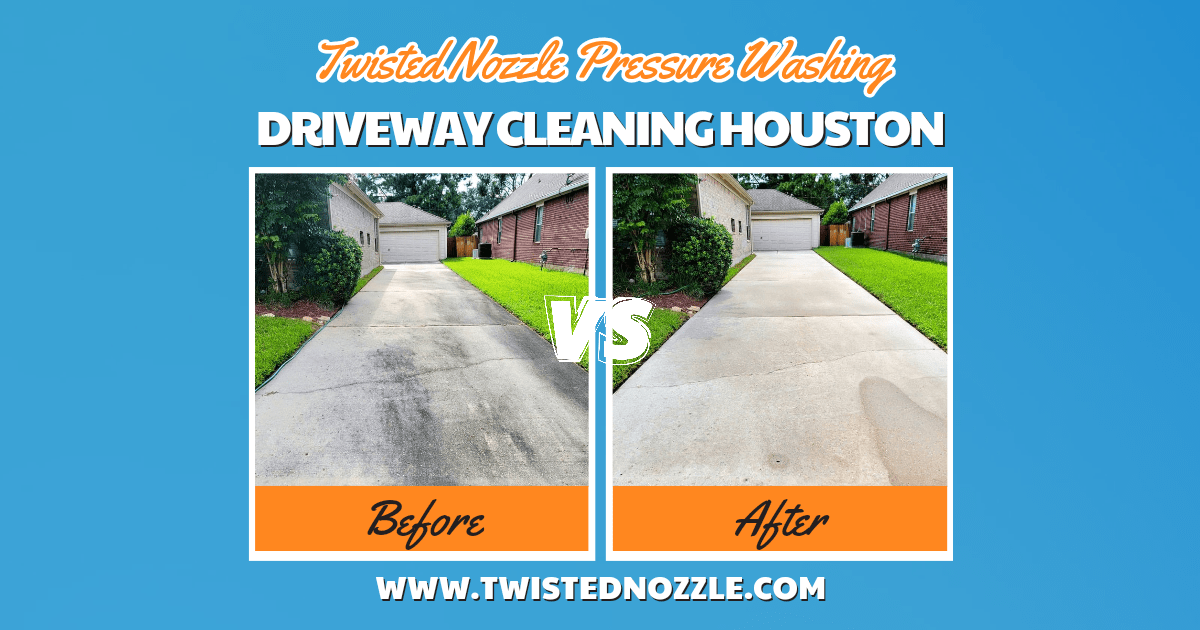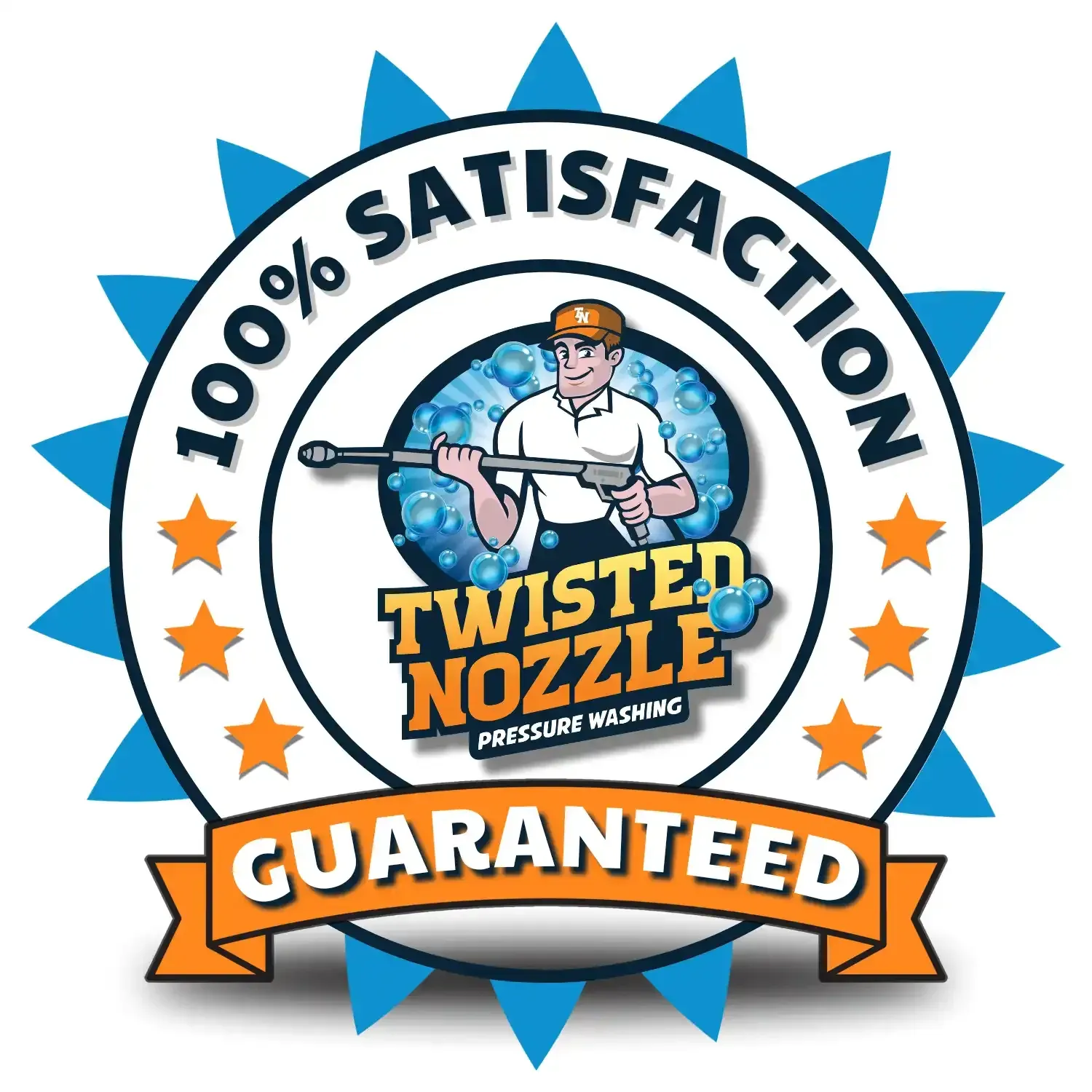Does Pressure Washing Damage Concrete?
Pressure washing Tips For Concrete Cleaning
Pressure washing is a popular method for cleaning various surfaces, but there's a lingering question: Does it damage concrete? In this comprehensive guide, we debunk myths and explore the impact of pressure washing on concrete surfaces.
Concrete Cleaning Tips: Methods and Techniques
- Pressure Washing: Pressure washing is a powerful and efficient method for concrete cleaning, just be careful of the powerful stream of water on stamped or stained concrete (Source: ConcreteNetwork). Adjust the pressure settings on your pressure washer according to surface needs. Start from a distance and gradually approach to avoid potential damage. Use sweeping motions to cover large areas systematically.
- Scrubbing and Cleaning Agents: For stubborn stains or smaller areas, manual scrubbing can be effective. Combine it with suitable cleaning agents, like mild detergents or a mixture of baking soda and water. Scrub in circular motions, concentrating on stained spots, and rinse thoroughly.
- Specialized Concrete Cleaners: Consider using specialized concrete cleaners for targeted results. These cleaners are formulated to break down specific stains like oil or grease. Follow the product instructions and use protective gear if necessary. Rinse the area thoroughly after application.
What's The Best Pressure Washer For Concrete?
When selecting the best pressure washer for concrete, consider factors like size, GPM flow rate (gallons per minute), and budget. Opt for a gas pressure washer powered model with at least 3000 PSI and 2.5 GPM flow rate. Brands like Karcher, Sun Joe, and Simpson pressure washers offer quality options for effective concrete cleaning.
Does Pressure Washing Harm Concrete?
- The Impact of High Pressure: While pressure washing efficiently removes dirt, excessive pressure can harm concrete. "Concrete pressure washing" and "best power washer for concrete" are often searched terms. High pressure may lead to surface etching, which weakens the concrete over time.
- Potential Risks and Damages: Beyond etching, risks include cracking and degradation. These risks highlight the importance of understanding the potential damage caused by improper pressure washing.
Best Practices for Concrete Pressure Washing
- Choosing the Right Pressure Washer: The quest for the best power washer for concrete begins with selecting the right equipment. Consider power, pressure levels, and nozzle types to ensure effective cleaning without compromising the concrete surface.
- Ideal Pressure and Nozzle Selection: To avoid damage, adhere to recommended pressure levels and choose appropriate nozzles. This ensures a balance between effective cleaning and preserving the integrity of the concrete.
- Preparing the Concrete Surface: Concrete cleaning services often include pre soaking and applying detergent. Before pressure washing, prepare the surface by removing loose debris and addressing stubborn stains. This enhances the cleaning process and minimizes potential damage.
- Post Pressure Washing Care: Preservation extends beyond the concrete cleaning process. Post pressure washing care involves sealing and regular maintenance to fortify the concrete against future damage.
Final Thoughts
In summary, pressure washing concrete can be both effective and safe if done correctly. Following the best practices outlined here ensures a clean, well maintained surface without compromising its durability. Preserve your concrete and enjoy the benefits of a spotless finish.
Twisted Nozzle Pressure Washing
(346)672-1648
www.twistednozzle.com
Concrete Pressure Washing FAQs
Contact Twisted Nozzle
SHARE THIS BLOG
LATEST PROJECTS
